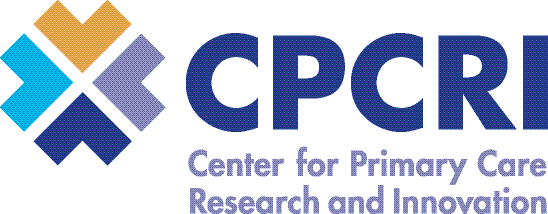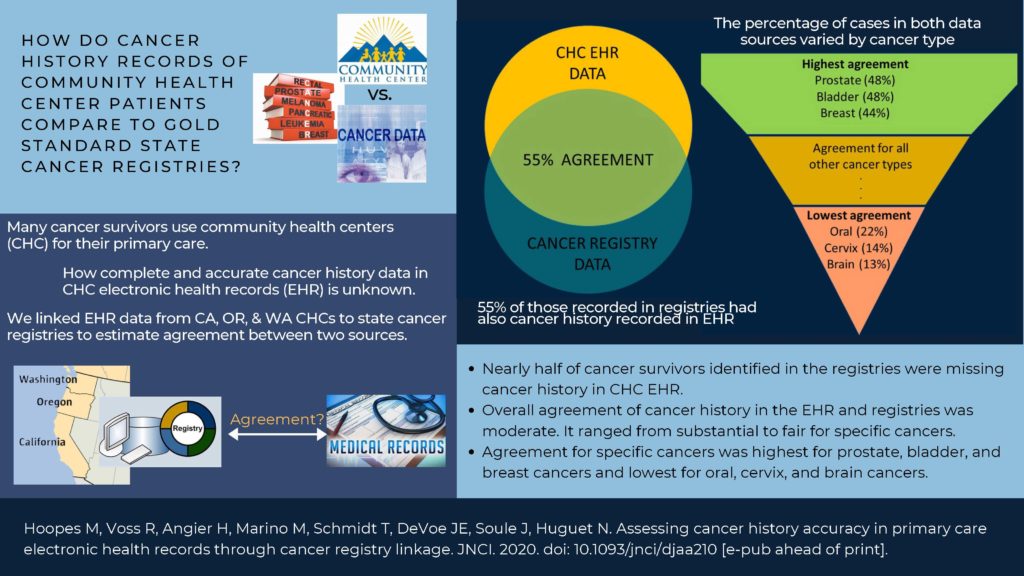Background
The majority of cancer survivors transition from oncological care to primary care settings several years after their diagnosis, and awareness of patient’s cancer history is important for providing optimal care for cancer survivors. Community health centers (CHC) provide healthcare to patients regardless of their insurance status, and CHC patients from with low socioeconomic status are often at higher risk for cancer and its negative consequences than those with high socioeconomic status. CHCs are not typically connected to cancer centers and their electronic health records (EHRs) may not adequately capture cancer history information. This study evaluated the completeness and accuracy of CHC EHRs by comparing them to state cancer registry information (the gold standard for cancer diagnosis history). EHR data from > 1.5 million adult CHC patients were linked to state cancer registries in California, Oregon, and Washington, and measures of agreement between these data sources were estimated.
Useful Findings
About half (45%) of cancer survivors identified in cancer registries were missing cancer history information in CHC EHRs. Overall agreement of cancer documentation between the CHC EHR and cancer registries was moderate (kappa = 0.535). The agreement for specific cancer types ranged from substantial for some cancers (e.g. prostate and bladder, kappa < 0.60) to fair for other cancers (e.g. melanoma and cervix, kappa > 0.40).
Bottom Line
This study published in the Journal of the National Cancer Institute showed moderate agreement between EHR and cancer registry data and indicated that the agreement varied by cancer type. These findings suggest the need for improving ways to capture cancer history information in CHC EHRs to provide better care for cancer survivors.

